Electronic logging device (ELD) compliance software has become an essential part of any trucking company’s operations since the Federal Motor Carrier Safety Administration (FMCSA) mandate took effect. Investing in the best electronic logbook software can help truckers and office staff to keep track of their hours of service, fuel costs, engine hours, and so much more.
When choosing an ELD solution, it’s crucial to consider your entire operation and avoid providers that trap you into long-term contracts, expensive hardware, or hidden fees. Established companies like HOS247 offer a reliable and user-friendly option for trucking businesses of all sizes.
Choosing HOS247
HOS247 is an industry leader in providing ELD compliance software solutions. Our electronic logbook software comes with outstanding support, ensuring prompt assistance in case of any situation that might compromise FMCSA compliance. With years of experience and a proven track record of success, we’ve established ourselves as a reliable choice for trucking companies across the nation.
When you call the HOS247 support line, you will likely hear a familiar voice on the other side of the line. As a medium-sized provider, we are able to offer quality customer support every day of the week to answer all of your questions. Our multilingual customer service team can assist you in English, Spanish, Russian, or Polish.
Do you have any questions? Talk to ELD Advisor: 650-405-3372 or Request Callback
HOS247 also offers a comprehensive all-in-one platform designed to streamline and enhance fleet management. This robust solution includes an ELD to ensure compliance with hours of service (HOS) regulations, along with advanced GPS tracking for real-time vehicle monitoring and route optimization. The platform also simplifies International Fuel Tax Agreement (IFTA) reporting by automating mileage calculations across different jurisdictions, while the idling monitoring feature helps reduce fuel consumption and emissions.
Additionally, HOS247’s vehicle maintenance feature tracks and schedules necessary maintenance tasks to prevent unexpected breakdowns and ensure fleet reliability. With all these features integrated into a single, user-friendly platform, HOS247 makes it easier than ever for fleet managers to efficiently handle multiple aspects of their operations, optimize their fleet’s performance, and grow their business.
Another benefit we offer is the low commitment. At HOS247, we are confident in the quality of our services and offer solutions with no contract required, which sets us apart from many of our competitors. We also offer a two-week trial with hassle-free returns. If you’re not satisfied within the first two weeks, you can return the device, no questions asked.
Now, let’s take a look at the FMCSA compliance requirements and how to avoid DOT violations.

What Is ELD Compliance?
More than three million vehicles and drivers in the US must follow the rules that accompany ELD compliance. Most drivers who are required to keep records of duty status (RODS) are required to use a compliant electronic logbook.
You must adhere to HOS regulations if you operate a commercial vehicle in interstate commerce that:
- Has a gross vehicle weight rating or gross combination weight rating of 10,001 pounds or more
- Is designed to transport 16 or more passengers (including the driver) for free
- Is designed to transport 9 or more passengers (including the driver) for a fee
- Is transporting hazardous materials in a quantity requiring placards
There are a few exceptions to this rule, such as:
- Short-haul drivers (CDL). Drivers who operate within a 100 air-mile radius of their normal work reporting location, start and end their workday at the same location, and are released from duty within 12 hours. These drivers must maintain time-clock records of their hours.
- Short-haul drivers (non-CDL). Drivers who operate within a 150 air-mile radius of their normal work reporting location, start and end their workday at the same location, and are released from duty within 14 hours. These drivers must maintain time-clock records of their hours.
- Driveaway-towaway operations. Drivers who transport vehicles as part of a shipment, where the vehicle being transported is the commodity being delivered.
- Pre-2000 vehicles. Vehicles manufactured before the model year 2000 are exempt from the ELD mandate, as they lack the necessary engine control module to support ELD functionality.
- Drivers who keep RODS for 8 days or fewer in a 30-day period. These drivers may continue to use paper logs instead of ELDs.
It’s essential for trucking companies and drivers to carefully review these exemptions and consult with the FMCSA or a qualified professional to determine if they qualify for any of these exceptions to the ELD mandate.
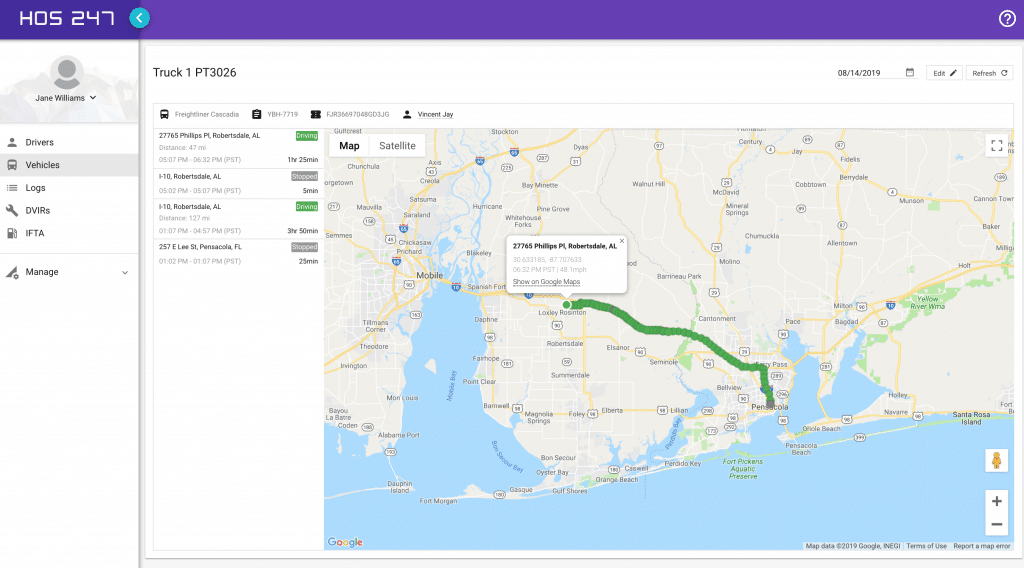
Checklist of FMCSA Compliance Requirements
Knowing exactly what you need to do to verify compliance is important. Using the wrong ELD software or disregarding this information can be damaging to any trucking company. Understanding the items on this FMCSA compliance checklist can help carriers fulfill the requirements of the federal mandate. Use this checklist as a guideline when selecting the perfect ELD software for your company.
Is the ELD compliant?
The first and most important thing to do is check to ensure that the ELD is actually listed on the FMCSA’s list of approved devices. Trucking companies should only invest in software that is self-certified by the manufacturer, as well as listed and registered on the FMCSA’s website.
If the ELD is portable. Is it visible to the driver?
Some ELD solutions are designed to be compatible with the smartphones that truckers already know and love. Companies should ensure that these devices are fixed onto the dashboard so that the driver can see them when seated in a normal driving position.
Do you have all of the in-cabin mandatory information?
Each driver should have a set of documents with them, including the ELD’s user manual, instructions on how to transfer logs to inspection officers, an instruction sheet for technical malfunctions, and a supply of blank driver’s records (paper logs).
Are user roles and access permissions properly set up?
It’s crucial to configure user roles and access permissions correctly within your ELD system to ensure data integrity and protect sensitive information. The ELD portal should allow for the creation of different user roles, such as drivers, dispatchers, fleet managers, and administrators, each with specific access rights.
Does the ELD automatically record the required data elements?
A compliant ELD must automatically record essential data elements, including the date, time, location, engine hours, and vehicle miles. The date and time should be recorded in accordance with the time zone of the driver’s home terminal, using a 24-hour format.
The ELD should capture the location of the vehicle at each duty status change and at 60-minute intervals while the vehicle is in motion. The location information must be accurate to within a 1-mile radius. The ELD should also record the vehicle’s engine hours and miles driven for each 24-hour period.
Does the ELD power on and off with the engine?
A compliant ELD should be integrally synchronized with the engine of the commercial motor vehicle. This means that the ELD must automatically power on when the engine is started and power off when the engine is turned off. The ELD should not require any manual intervention from the driver to initiate or terminate recording when the engine is powered on or off.
Additionally, if a driver attempts to operate the vehicle without logging in to the ELD, the device should provide a visual or audible warning to remind the driver to sign in before driving. This helps ensure that all driving time is accurately recorded and attributed to the correct driver.
Does the ELD automatically record the required data elements?
A compliant ELD must automatically record essential data elements, including the date, time, location, engine hours, and vehicle miles. The date and time should be recorded in accordance with the time zone of the driver’s home terminal, using a 24-hour format.
The ELD should capture the location of the vehicle at each duty status change and at 60-minute intervals while the vehicle is in motion. The location information must be accurate to within a 1-mile radius. The ELD should also record the vehicle’s engine hours and miles driven for each 24-hour period.
Does the ELD use an internal synchronization system?
To be compliant with FMCSA regulations, an ELD must use an internal synchronization system that accurately determines the vehicle’s position and movement. This typically involves a combination of GPS technology and connection to the vehicle’s engine control module (ECM) or onboard diagnostics (OBD) system.
While GPS is a crucial component of the ELD’s location tracking capabilities, it alone is not sufficient to meet the FMCSA’s requirements. The ELD must also monitor engine operation and status through a direct connection to the vehicle’s systems. This integration allows the ELD to accurately record driving time, engine hours, and other essential data elements.
Does the ELD support special driving categories and exemptions?
A compliant ELD should support the recording of special driving categories and exemptions, as permitted by FMCSA regulations. This includes yard moves, personal conveyance, and adverse driving conditions.
The ELD should allow drivers to indicate when they are operating under an exemption, such as the short-haul or driveaway-towaway exemptions. When an exemption is claimed, the electronic logbook should prompt the driver to provide the necessary information and documentation to support the exemption.
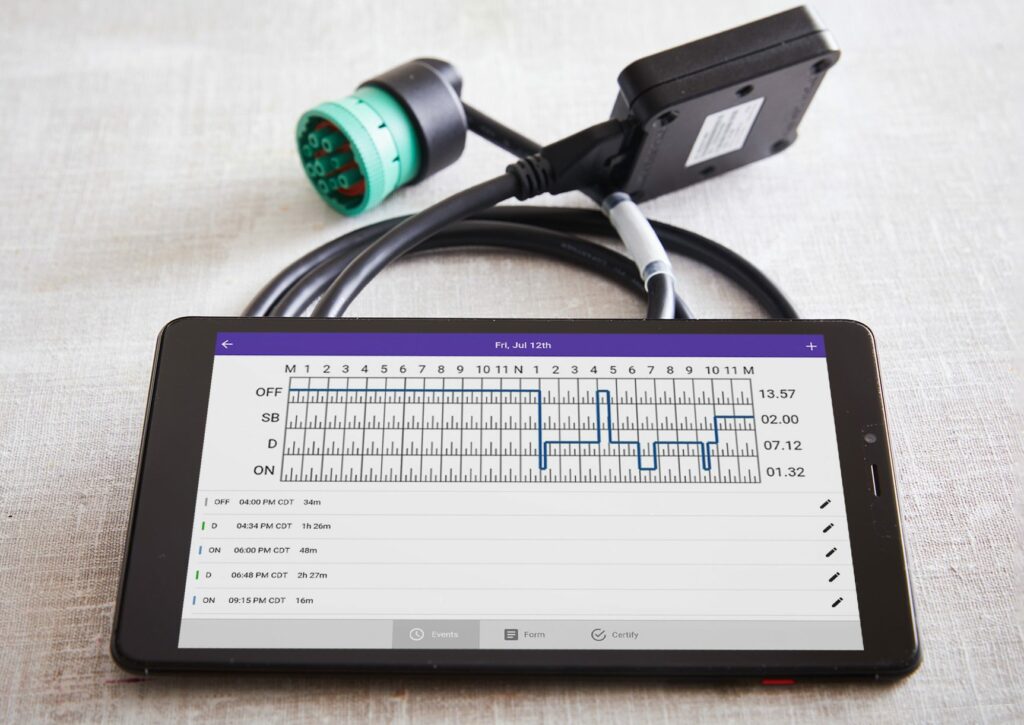
Common Misconceptions About ELD Compliance
While the ELD mandate has been in effect for a while, some misconceptions about ELD compliance still persist. It’s essential for trucking companies and owner-operators to have a clear understanding of the requirements to avoid any confusion or potential violations. Let’s clear up a few of these myths.
Myth 1: ELDs are not mandatory for all commercial vehicles
Fact: The vast majority of commercial motor vehicles involved in interstate commerce must comply with the ELD mandate. There are only a few exceptions to this rule, such as short-haul drivers operating within a 100 air-mile radius for CDL drivers or 150 air-mile radius for non-CDL drivers from their normal work reporting location.
Myth 2: ELDs automatically report HOS violations to the DOT
Fact: While ELDs record and store data related to hours of service, they do not automatically report violations to the authorities. The data is securely stored and can be accessed during inspections or audits, but the electronic logbook itself doesn’t proactively send violation information to enforcement agencies.
Myth 3: ELDs are too expensive and require long-term contracts
Fact: The cost and commitment associated with elog solutions can vary depending on the provider you choose. Some companies, like HOS247, offer flexible plans without long-term contracts, making it easy for trucking companies to find a solution that fits their budget and needs. Plus, many providers offer affordable hardware options or BYOD solutions, allowing drivers to use their own smartphones or tablets as ELDs.
Don’t let these misconceptions hold you back from ensuring your trucking company is fully compliant with the ELD mandate. By understanding the facts and partnering with a reliable provider, you can keep your business running smoothly and avoid any unnecessary violations or headaches.
Avoid Costly Mistakes with HOS247
Non-compliance with the ELD mandate can result in hefty fines and violations that eat into your bottom line. HOS247’s user-friendly and FMCSA-compliant ELD solution helps you avoid these costly mistakes while saving time and money.
Our software reduces the time drivers spend on paperwork, simplifies fuel expense reporting, and streamlines fleet management. With an affordable pricing structure and exceptional customer support, HOS247 is the smart choice for trucking companies looking to maintain compliance and boost efficiency. Take advantage of our hassle-free two-week trial and experience the benefits of our all-in-one platform firsthand.
Do you have any questions? Talk to ELD Advisor: 650-405-3372 or Request Callback
The Future of ELD Compliance
As technology continues to advance, it’s essential for trucking companies to stay ahead of the curve when it comes to ELD compliance. The FMCSA is always looking for ways to improve highway safety, and that means exploring new technologies that can be integrated with ELDs.
One exciting development on the horizon is the potential for ELDs to work hand-in-hand with other safety systems, like driver alert systems and collision avoidance technology. Imagine having a comprehensive safety net that not only ensures compliance with HOS regulations but also actively helps prevent accidents on the road.
But that’s not all – the data collected by ELDs could also play a big role in shaping future policy decisions. By analyzing trends and patterns in the data, the FMCSA can gain valuable insights into how to make our highways safer for everyone.
At HOS247, we’re committed to staying at the forefront of these developments. We know that our clients count on us to keep them compliant and prepared for whatever changes come their way. That’s why we make it our mission to stay up-to-date on all the latest regulatory developments and technological advancements in the world of ELDs.
When you partner with HOS247, you can rest assured that you’re not just getting a reliable ELD solution – you’re getting a team of experts who are dedicated to helping you navigate the ever-changing landscape of fleet management technology. We’ll make sure you’re always in the know and ready to tackle whatever challenges come your way.
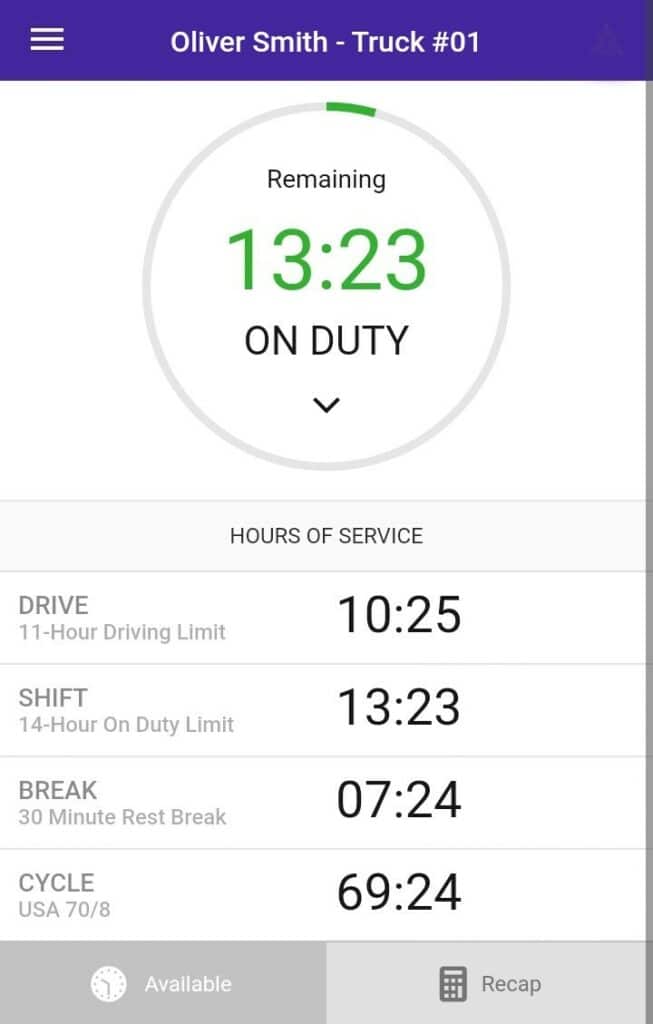
Conclusion
When it comes down to it, ELD compliance is not something to take lightly. The consequences of non-compliance can be severe, from hefty fines to putting your drivers and other motorists at risk. But with the right partner by your side, staying compliant doesn’t have to be a headache.
That’s where HOS247 comes in. Our user-friendly ELD solution is designed with trucking companies like yours in mind. We offer flexible plans that won’t lock you into long-term contracts, and our exceptional multilingual support means you’ll always have someone to turn to when you need help.
But don’t just take our word for it – experience the difference for yourself with our hassle-free 2-week trial. We’re confident that once you see how easy and intuitive our platform is, you’ll wonder how you ever managed without it.
At HOS247, we’re more than just an ELD provider – we’re your partner in compliance and fleet management success. We understand the challenges you face every day, and we’re here to help you overcome them with cutting-edge technology and unparalleled support. With our team of experts by your side, you can focus on what really matters – growing your business and keeping your drivers safe on the road.











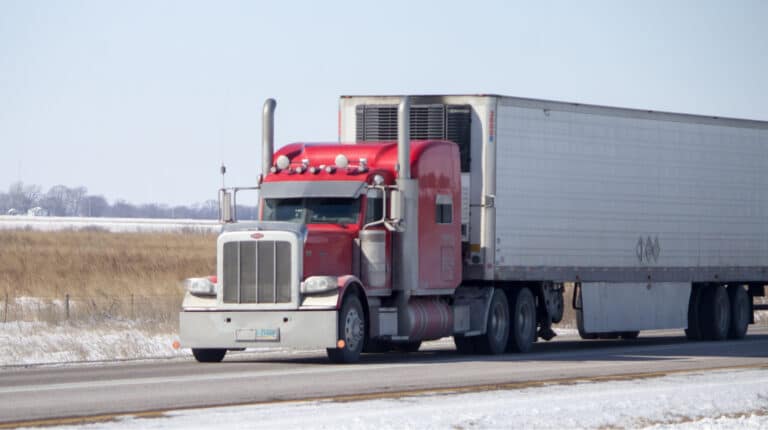
When choosing an ELD for your business, it’s important to remember that user-friendly software is as crucial for compliance with the ELD law as dependable hardware. The truck driver log app on the driver’s phone or tablet displays the HOS
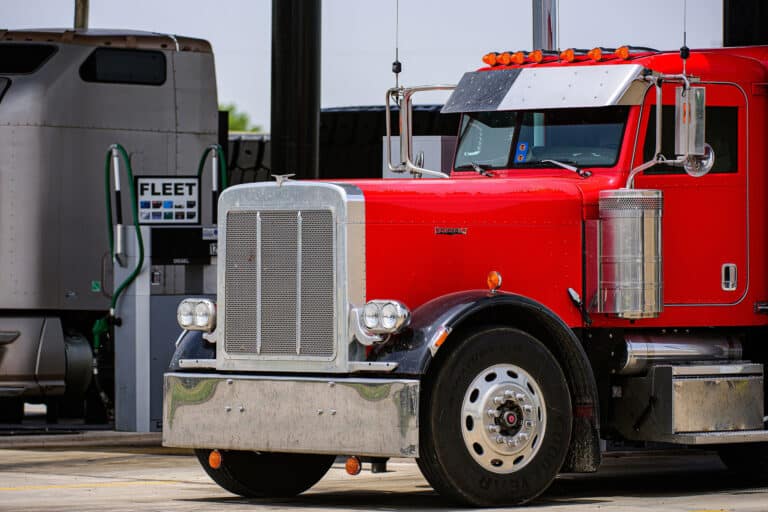
Tracking trucks with GPS helps carriers cut operational costs and optimize processes by monitoring vehicles’ locations in real-time, creating a more efficient workflow and increasing security for drivers and company assets. GPS truck tracking systems offer way more than just
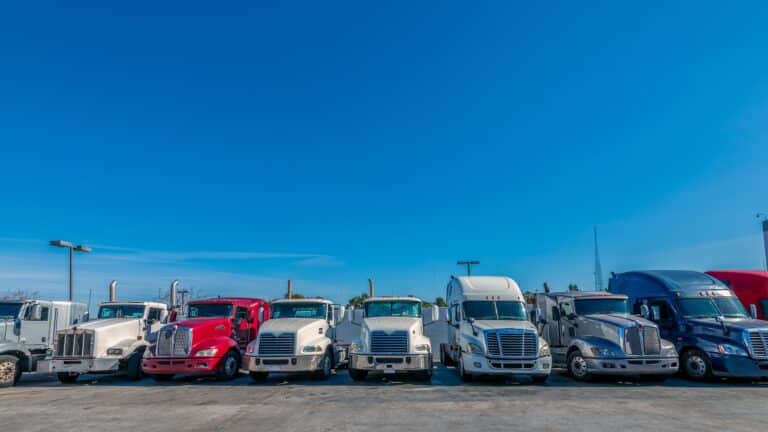
Transportation professionals experience clear financial benefits by integrating GPS tracking for commercial vehicles into their fleet. Truckers can substantially improve management capabilities of the entire fleet, as well as reduce costs and boost productivity. In this article we will look